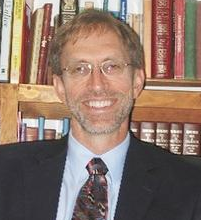
When reading European authors from the late 19th and early 20th centuries, one frequently runs across descriptions of America and Americans. Americans are either burly, uncultured, do-it-yourselfers or rich, ambitious, self-made men. As a nation America is emotional and reckless, but also courageous. Find an American in an Agatha Christie mystery, and it’s a pretty good bet he or she will either be the killer, the murder victim, or the ridiculously self-absorbed bystander.
G. K. Chesterton described Americans this way: “Americans have a taste for … rocking-chairs. A flippant critic might suggest that they select rocking-chairs so that, even when they are sitting down, they need not be sitting still.” Earlier, Alexis de Tocqueville characterized America this way: “I know of no country in which there is so little independence of mind and real freedom of discussion as in America.”
Recently I ran across several such descriptions, and it started me thinking about how America might be characterized by its contemporaries or, more interestingly still, by its historians. How will some future Edward Gibbon depict present-day America and Americans?
Future thinkers will portray our America as overwhelmingly distracted. Citing the shocking statistic that as many as 50 percent of Americans felt overwhelmed at work, they may come to the same conclusion Tony Schwartz did in the Harvard Business Review: the cause is not overwork but the attempt to juggle too many things at one time.
Americans, a future historian might say, lived to be distracted. They constantly checked email, shopped online, channel surfed, dined out, and spent money. Affluence was measured by the ability to pay for distractions. Indeed, some future Gibbon may conjecture that had America taken a 24 hour respite from distractions, her economy would have entirely collapsed.
A future historian might also point out that in the early 21st century America was dominated by feelings. “Crushed” might be a better word. That historian would notice that Americans believed that feelings were the only authentic thing about them. To betray one’s convictions was no big deal, but to betray one’s feelings – that was totally hypocritical.
A discerning historian might connect the dots between this disproportionate emphasis on feelings and another distinguishing feature of the age: the magnitude of addictions. Early 21st century America is addicted, as is inevitable when life is governed by feelings.
A careful historian would uncover telling data: more Americans died from painkiller overdoses than from car accidents. The increase in overdoses rose by 132% between 2004 and 2011, and the illicit use of drugs more than doubled among people between the ages of 50 and 64. Nearly one in four Americans reported episodes of binge drinking. America was hooked.
Studying the early 21st century, a historian might be shocked by the degree to which America was sexualized. It’s most persistent debates – abortion, same-sex marriage, gender rights – all revolved around issues of sexuality. That historian would find countless pictures of sexualized little girls and boys, not just in illegal pornography but in mainstream advertising. He or she would find scholarly articles on gender dysphoria alongside tawdry gossip columns on the same subject. Evidence of sexual preoccupation would be found in almost every area of life.
Our historian would also find that early 21st century Americans lived in fear. The previous generation’s dread of “the bomb” was replaced by fear of: immigrants, terrorism, weather events, old age, wrinkles, lack of resources, genetically-altered foods, global warming, fat, and the loss of social security benefits. Our future historiographer’s working title might be: “Sex, fear, and addiction in early 21st century America.”
It’s not too late to change that title, though it will take a spiritual earthquake to do it. St. Paul’s counsel, given to an equally troubled age, is key. “Don’t let the world around you squeeze you into its own mould, but let God re-mould your minds from within.” Nothing less will do.
Shayne Looper is the pastor of LockwoodCommunityChurch in Branch County, Michigan. Read more at shaynelooper.com.
This article originally appeared on Santa Rosa Press Gazette: Back to the present: how future Americans will see us
